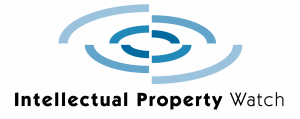 [Maximiliano Marzetti, guest contributor to IP Watch, Link (CC-BY-NC-SA)] On 12 December, the Argentinian Copyright Office and the Ministry of Culture invited a group of stakeholders, among which was this author, to discuss the final draft of the Exceptions and Limitations Bill (Proyecto de Ley de Excepciones) to modify current Copyright Act no.11.723 of 1933. One wonders whether it would be better to draft from scratch a modern Copyright Act instead of patching up the old 1933 Act. Nevertheless, the bill is welcomed. Argentina, as this author has already expressed, has one of the most restrictive copyright laws in the world (see Propuestas para ampliar el acceso a los bienes públicos en Argentina – Estableciendo el necesario balance entre derechos de propiedad intelectual y dominio público, Maximiliano Marzetti, Buenos Aires, 2013).
[Maximiliano Marzetti, guest contributor to IP Watch, Link (CC-BY-NC-SA)] On 12 December, the Argentinian Copyright Office and the Ministry of Culture invited a group of stakeholders, among which was this author, to discuss the final draft of the Exceptions and Limitations Bill (Proyecto de Ley de Excepciones) to modify current Copyright Act no.11.723 of 1933. One wonders whether it would be better to draft from scratch a modern Copyright Act instead of patching up the old 1933 Act. Nevertheless, the bill is welcomed. Argentina, as this author has already expressed, has one of the most restrictive copyright laws in the world (see Propuestas para ampliar el acceso a los bienes públicos en Argentina – Estableciendo el necesario balance entre derechos de propiedad intelectual y dominio público, Maximiliano Marzetti, Buenos Aires, 2013).
The meeting was attended by representatives of the Ministry of Foreign Affairs and Worship (Ministerio de Relaciones Exteriores y Culto), National Council for Scientific and Technical Research (CONICET), Association for Civil Rights (Asociación por los Derechos Civiles), Vía Libre Foundation, National Library (Biblioteca Nacional), Asociación of Graduate Librarians of the Argentine Republic (ABGRA), National Teachers’ Library (Biblioteca Nacional de Maestros), Center for the Management of Reprographic Rights (CADRA), National Commission of Popular Libraries (Comisión Nacional de Bibliotecas Populares), Argentinian Chamber of Books (Cámara Argentina del Libro) and the Argentine Chamber Of Publications (Cámara Argentina del Publicaciones).
Almost immediately two factions were formed. On the one hand, librarians, their groups and NGOs in favour of giving as much scope as possible to the proposed exceptions and limitations (even venturing to suggest including some more). On the other hand, publishers, their associations and collective management societies expressed their interest to limit the scope of such exceptions and limitations to their minimum, and if it were possible (in the opinion of one of its representatives) to reject the bill altogether.
The bill proposes to amend Articles 10, 25 and 36 of Law no. 11.723 and incorporates Articles 6 bis, 6 ter, 36 bis, 36 ter, 36 quater, 36 quinquies and 36 sexies.
Among other things, the bill proposes to extend the scope of the droit de courte citation; incorporates a specific exception for parodies; and exempts from payment the reproduction, distribution and making available to the public of works in special systems for the blind and persons with other perceptive disabilities.
It also legislates for the first time exceptions for libraries (Argentina is one of the few countries in the world that has none. According to the Study on Copyright Limitations and Exceptions for Libraries and Archives: Updated and Revised prepared by Kenneth D. Crews at the request of the World Intellectual Property Organization, Argentina is one of 32 countries out of a total of 188 with zero exceptions and limitations in favour of libraries).
The bill also creates a right for natural persons (legal entities are excluded) to reproduce for free up to 20% of a copyright work solely for personal use and research purposes, legislates on orphan works, incorporates a kind of compulsory and onerous licence to favour distance learning and, last but not least, adds the so-called freedom of panorama provision.
It is too early to tell what will happen. At the moment, different interest groups are trying to modify the wording of the bill. Then it will have to go through the two chambers of the Argentine Congress before it becomes law. This author will follow the gestation process very closely. Let us hope it will not end in miscarriage.




